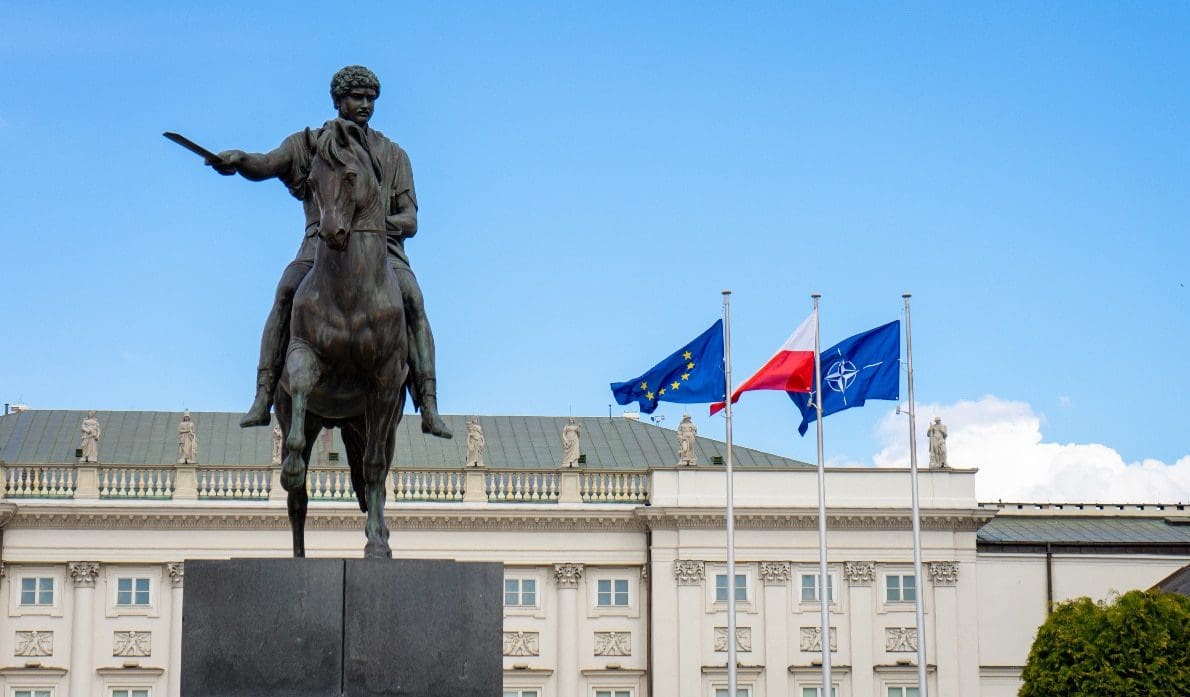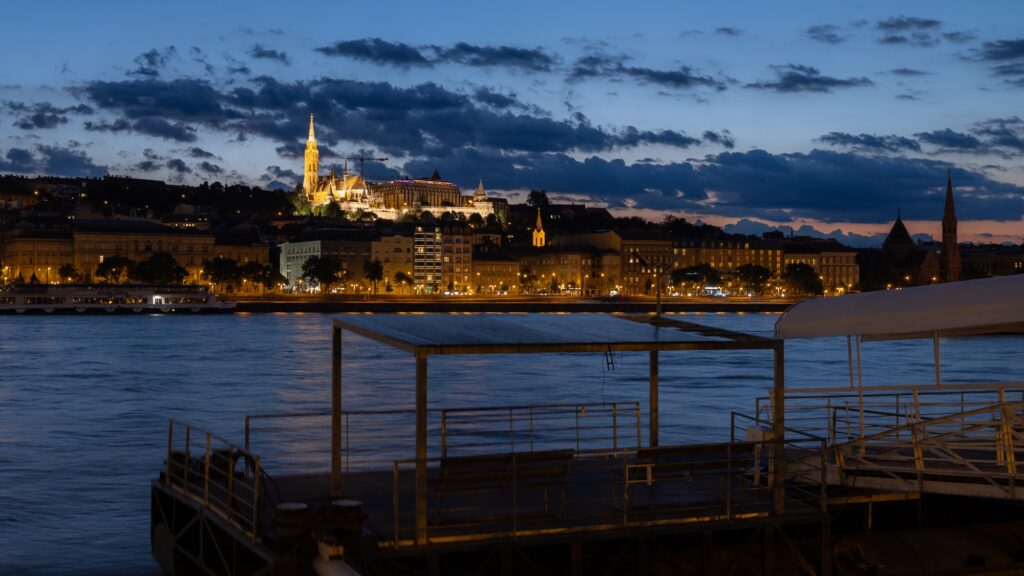This article explores shifting democratic norms in Europe during and after the Cold War. It argues that a prescriptive approach to what is acceptable democratic behaviour now predominates due to the rise to power and influence of forces imbued with a hyper-liberal ideology. A new emphasis on promoting group rights and post-national identities has taken hold in the European Union since the ground-breaking Maastricht Treaty of 1992. This has led to tension and disagreement with countries where governments remain wedded to nation-centred and often conservative approaches to managing democracy. This article chronicles the shift in thinking about the nature and direction of pluralist European politics by offering a comparison of Portugal from 1950 to 1974 and early twenty-first-century Poland and Hungary. It compares the approach to pre-democratic Portugal by Western decision-makers between 1950 and 1974 and the often actively disapproving approach of self-styled progressive elites to the conservative-orientated democracies of Poland and Hungary in our own day.
Upon news of the death of António de Oliveira Salazar, the autocratic ruler of Portugal, flags flew at half-mast at the headquarters of the North Atlantic Treaty Organization in Brussels at the end of July 1970. When stricken by the serious illness in 1968 which led to his replacement as Prime Minister, a prominent foreign visitor was Paul-Henri Spaak, a Belgian Socialist politician, and NATO’s second Secretary-General from 1957 to 1961.1
It is hard to imagine such consideration being shown by most of the current Western European political leaders to ruling conservatives in Poland and Hungary. Until the end of the Cold War, political freedom was interpreted broadly as the avoidance of communist rule or totalitarian methods of control. There was room for a traditional autocracy like Portugal, a founding member of NATO, which since 1989 has been eclipsed as a forum for inter-governmental action by the EU.
The EU’s Lisbon Treaty of 2008 called for a common defence policy and, in 2015, Ursula von der Leyen, now the head of the European Commission, called for the creation of a European Army.2 Thanks to an accumulation of powers under new treaties, starting with Maastricht in 1992, the pace of European integration has quickened. Simultaneously, the EU is increasingly concerned with defining and rolling out a far more explicitly liberal form of democracy than the one which has existed hitherto.
Since the year 2000, if not earlier, the EU has acquired the legal power to insist that member states comply in their internal affairs with a particular set of political values. It acts as a pedagogue promoting a new liberal order centred around the values of egalitarianism and diversity. Imposing and regulating behavioural standards within its own ranks has thus become a major preoccupation. The currently passive attitude towards the resurgence of totalitarianism in East Asia, particularly from the lead EU state Germany, also suggests that the EU has grown introspective and, unlike the NATO of old, is far more concerned with internal uniformity than with endorsing and supporting broadly-interpreted freedoms elsewhere.
It is thus a far cry from NATO and the West’s relative tolerance of pre-democratic Portugal. There is a new-found insistence from the top of the EU, backed by leading members like Germany and France, that all twenty-seven member states conform to a detailed template of rules laying down how democracy should be applied. After 1989, adherence to a progressive value system, based on tenets of social liberalism, increasingly became the yardstick for democratic acceptability in an EU-led Europe. It is no coincidence that this era has seen the rise to respectability of post-national governance. This development marks a definite shift away from a prior era when national self-determination based on economic justice and the defence of religion, family, and trans-class solidarity were seen as the values shaping the Cold War democratic order in Europe.
If Poland and Hungary had been free to govern themselves in that era, they would likely have had little difficulty in fitting into its democratic architecture. As it is, they (and to a lesser extent other post-communist EU members) are increasingly out on a limb due to their reluctance to replace usually low-key forms of nationalism with a new set of cosmopolitan values. These have been championed by trans-Atlantic elites in the media, academia, the third sector of activist think tanks and lobbies, and the high-tech sector of the economy. Values of liberal progressivism arguably now play a central part in shaping EU policy as its prerogatives have greatly expanded beyond the economic, from the Maastricht Treaty to the 2008 Lisbon Treaty. The latter was the unchanged text of the proposed European Constitution rejected by French and Dutch voters in 2005. It bestowed on the European Court of Justice sweeping new powers, enabling it to supervise the laws of member states that bore relevance to the themes of diversity and equality.
If Poland and Hungary had been free to govern themselves in that era, they would likely have had little difficulty in fitting into its democratic architecture
Before this age of highly-regulated democracy, NATO and the main drivers of the West’s containment policy directed at the Soviet Union, refrained from prescribing democratic norms. A broad spectrum of cooperation encompassed Portugal’s conservative autocracy and much of the Scandinavian Left. After the Cold War, the spectrum narrowed. The idea of allowing a concert of European states which encompassed even a political system like Salazar’s has grown to be unacceptable. Those directing EU institutions prefer to act as active pedagogues in the affairs of member states. The last twenty years of European integration have seen less convergence in economic affairs than in social, cultural, and legal matters. The arguable failure of the single currency to be the motor taking Europe towards the end point of supranational union has seen the emphasis switch instead towards building a new society composed of Europeans who think substantially alike and share values about the nature and direction of human society.
It sometimes seems as if majoritarian democracy is regarded with almost as much disfavour as the old Iberian autocracies by the EU’s progressive guardians if defiance is shown towards the EU’s mission of liberal transformation. Democracies with competitive elections are seen as defective and obsolete if they do not embrace the open societies with egalitarianism at their core and multiple access points for a range of minorities (some long-established, others freshly identified).
The European Parliament has sharply criticized changes to Poland’s internal constitutional order involving the judiciary, as well as Hungary’s tightening of rules on asylum seekers and the government of Viktor Orbán’s perceived hostility to the Open Society Foundation of George Soros. (The OSF, active in promoting radical causes on both sides of the Atlantic, has undoubtedly been influential in pushing the EU in the direction of embracing socially progressive norms.3)
The denial of a free and fair vote as happened in the Belarus elections held on 9 August 2020 shows the staying power of overt authoritarianism. Electoral theft provoked a strong statement from the EU’s foreign policy chief Josep Borrell as evidence of a severe crackdown emerged.4 But the EU’s indignation has not given rise to any concerted effort to put pressure on the Belarus ruler Lukashenko to retreat. During the German Presidency of the EU in the second half of 2020, the EU has not gone beyond declaratory stances in the face of serious abuses of human rights involving Turkey and China.
Unlike the Cold War era when NATO and the EU usually acted in close partnership to fend off communist aggression, the EU has preferred to produce its own customized approach to revived authoritarian threats on its frontiers, one that appears formulaic. The EU’s own approach towards this twenty-six-year authoritarian regime in Minsk has fluctuated from sanctions to substantial economic aid and back to sanctions.5 But the EU is alert to what it sees as defiance of its own internal doctrines.
Being beset by mounting economic policy failures may have prompted it to take strong action against insubordination among new members located away from the fulcrum of power. The Cambridge University historian Helen Thompson has written: ‘Rather like the Roman Catholic Church, the European Union has long worked by fiercely defending the authority of the centre of the Union. Any number of hypocrisies and outright sins are tolerated there while agitation in the periphery is quickly rendered heresy.’6
When major states like France and Germany bend the EU’s rules, negative repercussions rarely follow.7 Nor do the left-wing lobbies, NGOs, and think tanks, which help shape much of EU policy in the social sphere, react. They are ready to ignore backsliding by major players in the economic realm but are zealous in urging firm measures against conservative resistance to radical social liberalism. The consequences of selective justice are unsurprising. Double standards in the observation and application of rules undermine the EU’s legitimacy and exacerbate territorial cleavages in the entity on geographical North–South or East–West lines. Arguably, inviting Portugal to join NATO in 1949 was a double standard as its commitment to freedom was viewed in parts of the rest of the fledgling Atlantic Alliance as highly qualified. Salazar’s anti-democratic Estado Novo (New State) is sometimes seen in historiography as a standard- bearer of Iberian fascism. There was censorship, a ban on political parties, and occasional harsh sanctions against opponents. But he was allowed to be a semi-detached member of the anti-communist camp, just as Marshall Iosip Tito’s Yugoslav regime was allowed to exercise major autonomy within the Soviet bloc.
What perhaps allowed Salazar to enjoy such special dispensation was that he always made it clear that his autocracy was an anti-totalitarian one. This was spelled out particularly clearly very early during his premiership. On 25 May 1934, he delivered a speech in which he bluntly spelled out that as long as he was in charge, Portugal would not become a pocket version of Hitler’s or Mussolini’s totalitarian order.8
In practice, his governance over nearly forty years suggested that he bore less resemblance to inter-war fascists than to a figure like the conservative intellectual François Guizot, Prime Minister of France from 1840 to 1848. He would have been at one with Guizot who insisted through a lengthy public life that without order, there could be no freedom to act, to speak, or to possess.9 Salazar and his regime were tolerated by his NATO partners. The predominant view was that his autocracy stopped well short of fascism. Today, within the EU, conservative nationalism is no longer seen as a legitimate position for member states to adopt, as Poland and Hungary in particular have found. National governments in both countries hold regular elections but their record in the field of justice, media diversity, and minority rights has attracted minute scrutiny which is not extended to other states.
The current governments in Budapest and Warsaw show no inclination to abandon their preference for allowing Christian values that are now unfashionable among ruling elites in much of the rest of the EU to guide their domestic policies. They wish to avoid seeing national governance deferring to the precepts of a global technocracy. In the process they court media and diplomatic hostility of the kind that Salazar usually avoided. Governments acquired their information about his Estado Novo largely from diplomats rather than transnational activists with specific political agendas. In the 1930s, their reports often depicted a Christian leader in an age of pagan Caesarism. During the Second World War, Salazar interpreted neutrality favourably towards Britain, Portugal’s long-standing ally. He reacted unfavourably, however, when President Franklin D. Roosevelt assumed the strategic mid-Atlantic islands, the Azores fell under the Monroe Doctrine as an American sphere of influence. He was also adamant that Portugal would continue to plot its own specific political course and he declined to embark upon a new democratic departure in 1945.
Running an undemocratic regime in the 1950s, Salazar could find influential backing in West European elite circles which has more recently not been the case for the governments in Hungary and Poland, which unlike Portugal then, regularly hold completive elections and allow the opposition to share political control.
The danger of communism remained uppermost in the minds of many senior European decision-makers which predisposed several of them to stay close to Salazar. Indeed, one of his most consistent defenders was the Dutch politician Joseph Luns. He had got to know Salazar when attached to his country’s embassy in Lisbon and would go on to be the longest serving head of NATO from 1971 to 1984.10
Salazar was also able to benefit from the tenure in power in France of Charles de Gaulle from 1958 to 1969. He defended Portugal’s wish to retain its African territories which it strove to do until the toppling of the regime in 1974. France was an ally in a duel with the USA which got underway under John F. Kennedy, who believed that a rapid transfer of control from European powers in Africa to local elites was necessary to prevent Soviet expansion in Africa. Both European leaders, however, were sceptical about African nationalism acting as a bulwark against communism. Their respective clashes with Roosevelt in the Second World War had left them with a poor impression of US statecraft.11
The liberal turn which the United States took at home and abroad in the 1960s (perhaps masked by its costly entanglement in the war against the communists in Vietnam) made Salazar pessimistic about the long-term prospects of Western civilization. He feared the ability of the Soviet Union to subvert the West from within more than its military strength. He was pessimistic about whether the liberal democracies were alive to this danger.12
It was perhaps appropriate that Salazar’s own rule would come to an end in a year when the values of Christian order within a system of moderate nationalism came under assault in much of the West. It was in France where the tumult started when de Gaulle was challenged by protests of workers and students in May 1968. Salazar thought that US persistence in seeking to transplant aspects of its own governing systems across the world was naive.
He felt it was advisable to work with governments that ruled with a degree of prudence and efficiency even if they fell short of democratic standards in their conduct. It was fanciful to expect that countries in many parts of the Third World whose standard of development remained precarious, could be expected to make liberal parliamentary institutions work—institutions which had often emerged with painful slowness in the countries where they originated.
In the mid-1970s, Portugal during its eighteen-month left-wing revolution continued to confound the US policy establishment. Henry Kissinger, US Secretary of State at this time, was convinced that the West could do little to prevent Portugal falling into the Soviet orbit.13 But West European leaders, many of them social democrats, stepped into the breach. The support provided for moderate anti- communists enabled them to prevail in an intense power struggle.
Ironically, the revolution was prolonged by Euro- Marxists from Germany, Scandinavia, and France swelling the ranks of the far left.14 Idealist students and professional agitators saw the possibility of Portugal becoming a second North Atlantic Cuba where counter-cultural values could hold sway. Their dreams were swiftly dashed by the preponderance of conservative and pro-democratic views in Portugal. But over time left-wing radicals have found the expanding institutions of the EU far more fertile terrain for their transformative agenda. The chances of a backlash from the grassroots of society are diminished because elections have largely ceased to determine the direction which the EU takes. Progressives have thus enjoyed growing scope to pass laws, provide funding streams, and legitimize various minorities and special interest groups bound up with the Left. The manner in which laws are proposed by the unelected European Commission to go through a secretive committee stage before reaching Parliament is opaque. The EU Ombudsman Emily O’Reilly produced a report in 2017 in which she noted that the overwhelming secrecy of the legislative process makes it practically impossible not only for citizens, but even for national parliaments to scrutinize how decisions are arrived at.15
The new post-working-class Left, composed of the Greens, the far left, and weakened socialist parties now dominated by niche bourgeois concerns, have made headway in seeking to alter mindsets, principally among the educated young. The social engineering which was tried and failed in the Portugal of 1975 under the term ‘cultural dynamization’ has, over time, made steady progress in the rest of Western Europe. It has meant that with an ideological priesthood working to create a new society based on opaque principles like diversity and social justice, the political stage has shrunk. The range of views now permitted in the media, universities, and in corporate business increasingly corresponds to the ones approved by the focus groups, lobbyists, and NGO activists who do much of the preparatory work meant to legally define the EU’s progressive orientation. This radical clerisy at times seems to enjoy more influence than national parliaments. It has been hired to provide much of the legal ballast meant to accomplish political convergence in Europe.
Today, within the EU, conservative nationalism is no longer seen as a legitimate position for member states to adopt
Opponents of this vanguard Europe on the political Right are sometimes seen as dangerous foes requiring subjugation. It is interesting that an EU system whose social agenda is dominated by the Left only shows a fraction of the same concern with aggressive capitalist interests exploiting EU rules for their own advantage. Similarly, the survival of communist-era authoritarians in parts of the Balkans and their adaptation to EU norms, have never greatly troubled EU progressives.16 Likewise, the new threat to the peace in the Caucasus and the Levant posed by Recep Tayyip Erdoğan Turkey, does not preoccupy progressives at the centre of EU decision-making.
By contrast, microscopic attention is given to any development which seems to offer corroboration that Hungary is hurtling in an authoritarian direction. Thus the law announced on 30 March 2020 to coordinate action against the spread of the coronavirus pandemic was greeted with shrill and ominous headlines across respectable quarters of the Western media.17 Few mea culpas were heard when the state of emergency was ended on 20 June, meaning that Hungary had acted more speedily than many other governments to bring to a close its COVID measures.18 Those voices in diplomacy and journalism which counselled against pursuing an outright hostile approach to Salazar were conspicuous by their absence in speaking up for a temperate stance towards Orbán and his conservative Hungarian democracy at this tempestuous moment in Europe. Only Hans Seehofer, currently Germany’s Interior Minister and a former head of the Christian Social Union (CSU), has occasionally asked for balance and less ‘arrogance and condescension’ towards Hungary.19
In the past, the legitimacy of governments like Salazar’s and de Gaulle’s was not widely contested by their West European peers despite their autocratic features. The Polish member of the EP Ryszard Legutko reckoned in 2018 that a different era had arrived when ‘one has to be a liberal to be respectable’.20 Hungary has often been described as having a ‘hybrid’ system at variance with EU-prescribed democracy. But much of the complaint seems to spring from the failure of the network of globalist interests which enjoy sway in much of the rest of the EU to be as influential there.21
In no small measure, consternation in ruling EU circles about Hungary’s ‘otherness’ stems from the fact that it has been a successful foreign policy operator without needing to take its lead from the EU. It is perhaps no surprise that recent EU foreign policy chiefs have both been left-wingers, first Federica Mogherini and now Josep Borrell.
By contrast, there are usually minimal concerns within the EU system about the freelance initiatives of the EU’s chief national player Germany, to establish close bilateral ties with Turkey and Russia, both serial human rights offenders. Chancellor Angela Merkel has seen both Erdoğan and Vladimir Putin far more frequently than any other EU national leader. She suggested, as recently as August 2020, that Germany was fully entitled to pursue its own independent foreign policy initiatives, particularly in commercial fields. The case of the Nord Stream joint energy project with Russia should, in her eyes, not come into question due to acts like the poisoning of the main opposition leader Alexei Navalny.22
The popularity of the Orbán government, a three-time election winner, is inconvenient for the EU’s progressive watchdogs in the media. Timothy Garton Ash, an influential British commentator who first came to prominence by his championing of the right of Poland to throw off Soviet overlordship in the 1980s, usually has little to say about the disunity which Germany sows in Western ranks over Nord Stream. By contrast, he has no hesitation in advocating that the EU use its transnational clout to bring Orbán’s Hungary to heel.23
He and other well-placed liberal commentators in the major democracies rarely, if ever, display the same level of indignation for instance about Chancellor Merkel’s readiness to have the Chinese telecommunications firm Huawei play a key role in its 5G communications network. Merkel has gone out on a limb (and even damaged normally close ties with France which has a different view on Huawei’s reliability due to the company’s closeness to the Chinese state), arguably because Germany does not want to threaten its economic ties to China. After the poisoning of Alexei Navalny the Financial Times columnist Wolfgang Münchau observed that the addiction to mercantilism means that Merkel’s Germany has entered into a relationship of economic dependence with both China and Russia. His dismal conclusion was that Germany’s role as a foreign policy actor had been seriously hampered as a result.24
Understandably, there is enthusiasm among Orbán’s West European opponents at any sign of a weakening grip on power. The announcement in 2020 that the six largest opposition parties would stand a single candidate in all electoral districts at the next parliamentary election was given prominence. Little notice was given to the fact that among the participants would be Jobbik, formerly a party with an antisemitic edge. Normally, Jobbik’s new orientation as ‘Christian Conservative’ would cause concern among Hungary watchers but it was passed over in silence. Orbán causes particular displeasure because of his insistence that his national conservatism is an authentic expression of European values with a respectable lineage. He concedes that liberalism had a distinguished role in freeing former Soviet satellites like his own country from tyranny but that it lost its lustre and relevance by relegating the nation in favour of remote and top-down global arrangement for organizing humanity.25 Perhaps the clearest enunciation of his view that it is erroneous to conflate democracy with liberalism, came in 2014 when he said: Just because a state is not liberal, it can still be a democracy. (…) The Hungarian nation is not simply a group of individuals but a community that must be organized, reinforced and in fact constructed. And so in this sense the new state that we are constructing in Hungary is an illiberal state, a non-liberal state. It does not reject the fundamental principles of liberalism such as freedom… but it does not make this ideology the central element of state organization, but instead includes a different, special, national approach.26
Salazar seems to have believed that competitive democracy was in essence a liberal project bound to produce results inimical to public order and governmental stability. Perhaps if there had been established models of conservative democratic governance like Hungary’s, he might have hesitated before imposing autocracy on Portugal. It might also turn out to be the case that the form of pluralism that has sunk roots in Hungary might be more suitable for export to traditional societies than avowed liberal brands which emphasize cultural experimentation and intense levels of global interaction in economic matters.
In the initial decades of the post-1945 democratic revival, there was no prescribed form of democracy. A liberal democratic one has emerged perhaps less due to any proven effectiveness and more on account of the fact that adherents who benefit from hierarchical, technocratic, and globally focused forms of governance have an increasingly tight hold over institutions like the EU and its key member states. The wave of university graduates, particularly from the social sciences and the humanities entering public affairs has coincided with democracy being seen as a conduit for a progressive world order. Democratic politics has come to be seen as less concerned with delivering effective government within an electoral cycle than with long-term efforts to forge a new global order. The progressive lobbies which have thrashed out the policy framework for the EU’s increasingly bold social policies, sometimes give the impression that they, and not the electorate, represent the popular will.27 Perhaps for this reason, post-national activists whose sense of importance has grown with the passage of NGOs into active policymaking, regard Orbán as a more dangerous obstacle to a liberal Europe than Putin or Erdoğan. He is an unabashed conservative who refuses to fall into line. The style and substance of his politics might have been acceptable in the era of Konrad Adenauer or Mitterrand, but are now beyond the pale.
Orbán, in his turn, is unimpressed by the new belief that the post-nation state that assumes the moral high ground on race, gender, the environment, and the ‘soft power’ of the EU, could become the basis for a future system of global governance. He sees this as a hostile takeover by a mixture of free market liberals and left-wing radicals who have a vested interest in turning Europe into a pillar of a world state.28 Hungary’s exposure to recurring aggression at the hands of powers with varying ideological complexions is bound to reinforce his scepticism. This scepticism about noisy but often impractical idealism in an age of new rogue powers is likely to be even more strongly felt in Poland.
Poland’s long cycle of adversity from 1783 to 1989 is bound to instil a deep sense of vigilance across much of society. The sense of trauma has not unnaturally produced a spirit of defiance, especially towards what can be viewed as patronizing examples of external interference. Its history has therefore put it in no mood for EU pedagogic lessons. Liberal and Left voices calling for Europe to embrace the moral high ground of progressive policies on race, gender, sexual orientation, and the environment enjoy more appeal than in Hungary but still only command secondary influence.
It had not gone unnoticed among some Poles that the EU was occasionally ready to offer public endorsement for important left-wing historical figures suspicious of nationhood. The centenary of Karl Marx’s birth in May 2018 saw the President of the European Commission, Jean-Claude Juncker, give a speech in Trier, Marx’s birthplace in which he described him as an important thinker who did not deserve blame for the crimes of his followers.29
Juncker’s euphemistic treatment of a figure whose political creed unleashed huge suffering in Poland, would likely have left many Poles cold, not just those who identified with the ruling conservative Law and Justice Party (PiS), headed by Jarosłav Kaczyński. Recent governments have shown no inclination to embrace the secular, globally-minded, and hyper-individualistic agenda that shapes different EU policy areas.
Defenders of Poland and Hungary would argue that they are trying to shield the European project from zealots by moving it firmly back to core matters
Conservatism is not as entrenched in Poland as in Hungary as shown by the closeness of the presidential election in which the incumbent Andrzej Duda won a narrow victory. But those Poles in power, even preceding the present government, have displayed confidence in fending off attempts by Brussels to weaken national democratic control over important policy areas. The main flashpoint has arisen over the enactment of a law imposing a retirement age of sixty-five on the members of the Supreme Court. The court includes supporters and beneficiaries of the pre-1989 communist regime.30 Its readiness to dilute or reject pro-life laws has been one of the main reasons for this legislative step being taken.31 But the judicial plans have been energetically denounced by the foreign media, NGOs, and prominent EU politicians as dangerously illiberal. Members of the EP have tried, without success to suspend Poland’s voting rights on the European Council, unless the government retreats.32 The two countries which this move was directed against are likely to continue to reject supranational interference. Such interference is seen as the outcome of large-scale social engineering which combines commitment to a free market economy with promotion of individualized identity politics.33
The Polish government seems to regard the EU’s insistence on enforcing liberal norms, some of which have only recently acquired acceptance even in progressive circles, as a fanciful preoccupation that damages the credibility of the European integration ideal. Defenders of Poland and Hungary would argue that they are trying to shield the European project from zealots by moving it firmly back to core matters, especially in the economic sphere, that boosted the EU’s credibility. In Poland, there is undisguised anxiety that an absorption with divisive niche issues will only give external long-term opponents of a strong but inter-governmentally focused EU opportunities to make trouble.
Conclusion
In the early twenty-first century, those former Soviet satellite states which mainly joined the EU in 2004 are the main bulwarks against the revival of ideologies with their roots in communist thinking. It is now Western Europe and North America which are the geopolitical areas where offshoots of totalitarian thinking enjoy vigorous growth. It is an ironic denouement given that the end of the Cold War was supposed to have marked the definitive triumph of liberal democracy. But there is no lack of evidence that democracy has fallen into an alarming state of disrepair in some of its main former strongholds. A hyper-liberalism has emerged that is no longer concerned with upholding basic freedoms.34 The verdict of the ballot box is often distrusted and majoritarian democracy based on self-governing nation states is seen as an inferior form of governance. International networks and institutions bring together global corporations, NGOs, academic elites, and post-national politicians in upholding avowedly progressive solutions for the future. The emphasis is often on re-engineering society in order to make it fully receptive to identity politics and social egalitarianism.
It is far from outlandish to see such a political turn in the West as, at least in part, a reversal to the form of managed authoritarian politics that was often a hallmark of Europe from 1917 to 1989. Against the background of a COVID-19 pandemic which has badly disrupted nearly all societies, fears are growing that severe conflicts and authoritarian controls will come to define much of the West.35 Radical agitators have taken to the streets in the United States and Britain to test the resolve of the authorities by using direct action to disrupt everyday living as well as assail physical symbols of a past which they wish to sweep away. America witnessed astonishing levels of violence in 2020 and many fear that worse may be to come.
Arguably, the instability has been worsened by important elements of public broadcasting and the print media in the major Anglophone countries renouncing their traditional role of providing balanced and reliable information in times of crisis. The uniformly left-wing profile of much of the media makes this impossible to do. Instead, appealing to niche radicalized middle-class audiences, sections of the media have fanned the flames of ideological conflict.36 In reporting of the nationwide protests and rioting that shook America in the summer of 2020, euphemistic accounts of violence or the withholding of vital information about key events in order to frame an embattled narrative, have come to be seen as defining features of a media industry in crisis, as audiences and readerships slump.
The re-definition of liberal democracy as a progressive left-wing project preoccupied with placing race and other forms of group identity at the centre of debate and policy development is bound to be viewed with concern in countries which only recently emerged from communist rule. In their case, it was not culture but economics which lay behind the crushing of dissent. But the advance of neo-Marxism, which wishes to uproot societies not through break-neck industrialization but by politicizing private, informal, and even intimate aspects of life, is bound to be terrifying to many in societies which have already witnessed totalitarianism in action. The level of support within state bureaucracies, as well as economic, educational, sporting, and military elites for embarking on a form of cultural revolution in the West, is bound to cause apprehension to citizens everywhere with a strong historical memory.
Much of East Central Europe is likely to remain firmly apart from the re-definition of liberal democracy as a left-wing project primarily focused on cultural transformation. It will be no surprise if countries there become magnets for people fleeing the direct effects on themselves and their families of messianic projects becoming entrenched in public education and government programmes. With high numbers of citizens who were unwilling to state publicly how they were going to vote in the 2020 presidential election, America is already gripped by a sense of fear about what the future holds. There have been large population movements away from ‘Blue’ states and cities where long-term Democratic Party rule has resulted in high taxes, deteriorating social conditions and attacks on private property in 2020.37 To a smaller extent, people alarmed by deteriorating conditions in some of the major Western European conurbations have made a decision to leave them behind. Israel has been a beneficiary of such an exodus—as have Poland and Hungary.
It is too readily forgotten that during the era of the wars of religion in Western Europe, Hungary, along with Poland and Transylvania (today northwestern Romania) were centres of religious toleration where different branches of Christianity coexisted rather than sought to destroy each other. Some have argued that a new-found cultish puritanism is on the march in Western Europe and the USA that sees the silencing of opposing views as legitimate and necessary.38 The unprecedented levels of violent unrest in the USA and their echoes in Britain and elsewhere are likely to reinforce the determination of ruling conservatives to prevent the order that is the basis of freedom from fraying beyond the point of no return.








